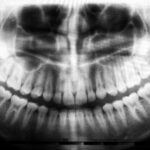Introduction to Migraine Management
Migraine, a severe neurological disorder, manifests as intense headaches accompanied by nausea, sensitivity to light and sound, and sometimes vomiting. It ranks among the most debilitating chronic conditions globally, affecting a significant portion of the population. As we step into 2024, it remains crucial for sufferers to stay informed about the most effective treatments to manage and alleviate migraine symptoms.
Advanced Medications for Migraine Relief
The battle against migraines sees a dual approach in medication: abortive and preventative drugs. Abortive medications are used at the onset of migraines to curb the symptoms swiftly, while preventative medications are used regularly to decrease the frequency and severity of the attacks.
- Abortive Medications: This category includes Triptans, which narrow blood vessels to reduce inflammation, and Ergotamines, which are stronger and have more side effects. NSAIDs like ibuprofen and anti-nausea medications are also popular choices.
- Preventative Medications: These include Beta-blockers, which block adrenaline effects, Calcium channel blockers that relax blood vessels, and certain Antidepressants. Botox injections have also emerged as a preventative measure by reducing muscle tension linked to migraine triggers.
Non-Pharmacological Approaches
Beyond medications, several non-drug therapies have proven effective in managing migraines:
- Focused Relaxation Techniques: Methods like meditation, yoga, and massage therapy help reduce stress and muscle tension, common migraine triggers.
- Cognitive Behavioral Therapy (CBT): CBT addresses negative thought patterns and behaviors to reduce stress and anxiety, thereby managing migraines. It often incorporates relaxation exercises and mindfulness meditation.
Lifestyle Modifications for Migraine Control
Adjusting one’s lifestyle can significantly impact the frequency and intensity of migraines. Identifying and avoiding food triggers like chocolate, caffeine, and alcohol is crucial. Regular physical activity, consistent sleep schedules, and stress management techniques also play pivotal roles in controlling migraines.
Enhancing Life Quality in 2024
Each migraine sufferer’s journey is unique, necessitating personalized treatment plans developed in collaboration with healthcare providers. The goal is always to minimize the impact of migraines on daily life and enhance overall well-being.
As we continue into 2024, staying informed about the latest developments in migraine treatments is crucial. Migraine sufferers are encouraged to consult with healthcare professionals to tailor a treatment plan that best suits their condition, striving towards a less painful and more productive life.
Conclusion
While migraines remain a challenging medical condition, the advancements in both medical treatments and holistic approaches offer hope and practical solutions for sufferers in 2024. By combining the right medications with effective non-pharmacological therapies and lifestyle changes, individuals can achieve better control over their migraines and improve their quality of life significantly.
Migraines need not control your life. With the right strategies and treatments, you can manage your symptoms and reclaim your days. Here’s to a brighter, less painful year ahead!
[Share this article on Facebook, Twitter, and WhatsApp to help spread awareness and support others in their journey to manage migraines effectively.]








